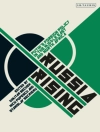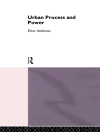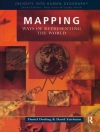People/States/Territories examines the role of state personnel in shaping, and being shaped by, state organizations and territories, and demonstrates how agents have actively contributed to the reproduction and transformation of the British state over the long term.
* A valuable corrective to recent characterizations of territory as a static and given geographical concept
* An explication of the political geographies of state reproduction and transformation, through its focus on state territoriality and the variegated character of state power
* Considerable empirical insight into the consolidation of the British state over the long term.
Mục lục
Series Editors’ Preface.
Acknowledgements.
1. Introduction: state personnel and the reproduction of
state forms.
2. Analysing an emergent state: state actors and a
territorial state apparatus.
Thinking about the state….
Medieval and early modern political theory: conceptualising
political authority.
Weber and the bureaucratic machine of the modern state.
The human geographies of strategic-relational state theory.
Exploring the networked state.
Bringing it all together: analysing an emergent state.
3. Peopling the medieval state.
A case of stating the obvious?.
People and the feudal state.
State leaders and the emergence of medieval state forms in the
British Isles.
Local government and the validation and contestation of state
forms.
The medieval state: different not worse?.
4. Embodying early modern state consolidation.
Peopling the central state apparatus.
The body politic: JPs and the political constitution of England
and Wales.
Shaping and steering the local state.
State personnel and the embodiment of early modern state
consolidation.
5. The state of high modernity: the age of the
inspector.
The nineteenth-century revolution in government.
The age of the inspector.
Leonard Horner and the regulation of factory production.
Embodying a tentative state consolidation.
6. Breaking-up: people and the late modern UK state.
The challenges of executive devolution in the UK.
New devolved organizations, new organizational cultures.
State personnel and the ‘joining up’ of regional
governance.
Territorial identities and the reproduction of devolution.
Devolution in prospect.
7. Conclusions: peopling the state.
Bibliography.
Index
Giới thiệu về tác giả
Rhys Jones is a Senior Lecturer in Human Geography at the University of Wales, Aberystwyth, whose research interests lie in the political geographies of state transformation. His work has appeared in a number of papers published in international social science journals.












